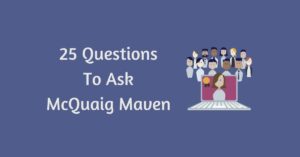A successful onboarding strategy ensures that your new hires and internal moves have the best chance of settling in quickly, can be productive and stay for the long term.

Onboarding, or induction, is so much more than a brief introduction to the team over lunch, and should begin well before the start date. Arguably, the onboarding process begins with job role benchmarking as you define the needs of the role before the search even begins. This allows you to constructively assess and compare your applicant candidates against the needs of the role, rather than against each other.
“Robust induction processes that embed new starters in the organisational culture of hybrid workplaces, sustained by responsive managers, will play a key part in making a success of the next stage of organisational transformation.”
Jane Parry, associate professor of work and employment at Southampton Business School.
Start from a position of confidence and integrity
Aside from the cost of a bad hire to your organisation, it’s unfair to offer a role to a candidate who is not well suited simply because you did not do your homework. Your candidate relies on you to know what the role requires and to make an appropriate selection decision. If the hire goes wrong, it’s too easy to blame the new employee for not being up to scratch. As a recruiter/hiring manager, it is your responsibility to understand what/who will be a good match for the job and your workplace culture.
Job role benchmarking and accurate assessment of fixed traits and trainable skills allows hiring managers to make decisions from a position of confidence and integrity. They can be upfront with their successful and even unsuccessful candidates*, thereby beginning the work relationship on an honest footing. (*Be fair to your unsuccessfuls, you might want them one day).
For example, your preferred candidate might be rather cold/overheated in their leadership style, but with some coaching around their emotional intelligence, can learn to adjust their responses when they need to. Rather than finding this out three months into the hire, assessment allows you to create a bespoke onboarding plan which addresses development needs from the off.
“The efficiency of your onboarding process is directly linked to new hire retention rates. This is borne out by data from Glassdoor, which shows that companies with a strong onboarding process improve new hire retention by 82%.”
HR Briefing: Hiring trends recruiters need to look out for in 2023, 21 February 2023.
Good cultural fit = job requirements + candidate skills & traits + strong workplace relationships
It’s not just your candidates that you should assess. Having a clear picture of your team and who will fit into it also helps to select candidates who are most likely to be a good addition. That’s not to say that outliers don’t add value, but they can make for trickier new starters. This is where bespoke onboarding increases the chances of new work relationships developing appropriately and constructively.
You’ll also be able to widen the diversity within your teams by focusing on how the candidate is likely to behave in the role in your workplace rather than making a hiring decision based on their appearance and past performance in a different workplace culture.
By including the team in your new starter’s onboarding plan, you place your newbie into the very heart of the team and give them all opportunities to make good connections. This is the foundation of an effective team with shared values.
Identify and address skills gaps during onboarding
“... six to 12 months of thoughtfully curated onboarding and coaching is critical to workers developing and honing the skills needed to be successful in their new roles”
Human capital at work: The value of experience, McKinsey Global Institute, 2 June 2022.
Gaps between what the role requires and the talent pool available to you are inevitable. While a perfect match is not impossible, perfect isn’t always perfect. The role’s requirements will likely change over time and you need someone who can flex and adapt to meet those needs. Assessing for adaptability skills is therefore crucial for long term success.
An onboarding plan based on the results of assessment enables your new hire to be aware of their gaps and give them the tools to fill them with new or enhanced skills. These can be technical, communication and presentation skills, and also the soft power skills which can make or break a new hire. Reputations are won and lost within the early weeks of a new hire. Rather than wait until the end of the probation period to kick off skills development, it’s a sound investment to give your new starter the best chance to achieve their potential at the outset.
Transform your workplace culture with Holst
Avoid leaving your onboarding planning until the day before your new hire starts. Factor it into your hiring decisions and the subsequent onboarding process to ensure that you recruit with integrity and confidence.
Talk to us to find out how we help recruiters and hiring managers to successfully onboard their new hires and internal moves to optimise their workplace culture.





